Review of Wild At Heart
Introduction
After the success of ‘Blue Velvet’ and the television series ‘Twin Peaks’, David Lynch decided that audiences wanted more of the same in this violent road-movie, spun into bizarre new territory through Lynch’s genre-bending modus operandi. After being released from prison after over-zealously defending himself from a would-be attacker, Sailor (Nicolas Cage) whisks away his sweetheart Lula (Laura Dern) from the clutches of her domineering, and almost certainly batty mother Marietta (a hysterically flaky Diane Ladd), and takes her on a road trip through Hicksville USA with no particular destination in mind. Whilst moving from motel to motel, repeatedly consummating their love and dancing the night away they always find time to meet strange characters and indulge in nouvelle vague style rambling post-coital conversations over a cigarette or a hundred. However, Marietta is having none of it and hires hapless P.I. Harry Dean Stanton and members of a mysterious cabal headed by the leery Marselles Santos (creepy J.E. Freeman), who soon put Stanton out of business and, with the help of snarling redneck Willem Dafoe and his una-brau girlfriend Isabella Rosselini, hope to ensnare Sailor in a seemingly fatalistically determined plot to land him back in jail.
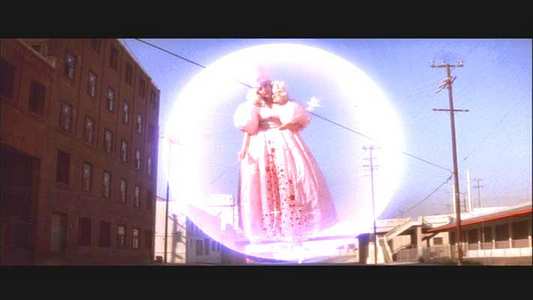
Video
Overall, a good transfer, with sharp colours and a solid preservation of Lynch’s stark, ‘Scope images. ‘Blue Velvet’s dense contrasts and muddied, vivid pastels have given way to a more conventional aesthetic (perhaps combed-over from his dalliances in the bureaucratic realm of TV), but there’s still plenty of stylistic interest.
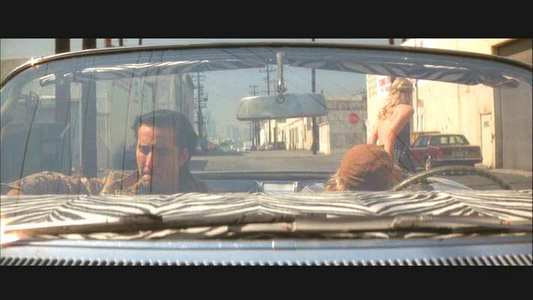
Audio
Good 5.1. Angelo Badalamenti’s melding of lush romantic strings, cheesy pop needle drops and menacing flourishes have always been the perfect accompaniment to Lynch’s dread-soaked pop-myths, and the composer finds enough fertile ground to exploit here.
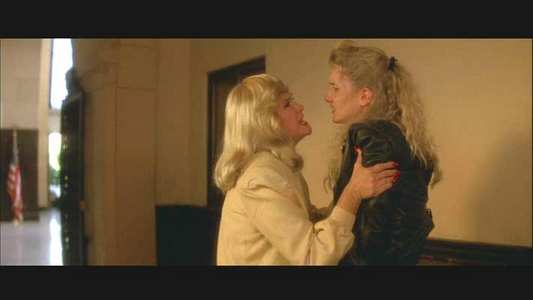
Features
The menus show promise, but you get nothing.
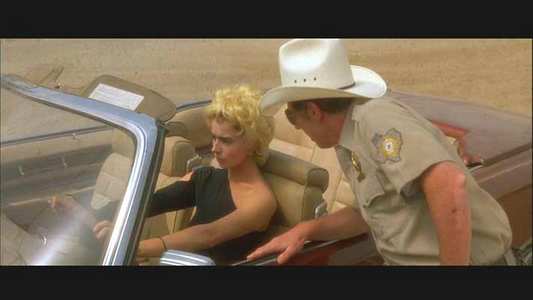
Conclusion
A strikingly empty trip through Lynch-country, with little of the haunting spectacle that makes Lynch’s dreamy fantasias so darkly alluring, as well as an abundance of dead-end intertexts (most notably ‘The Wizard of Oz’.) Ostensibly, Lynch takes the fairytale machinations of the ‘lovers on the lam’ movie to their logical extreme… with the focus on the extreme, and it comes in plenty of flavors: violence, sex, profanity (Dafoe tries in one scene to out-‘f***’ Dennis Hopper… he fails.) The performances partake in the same, predictable excess: Dianne Ladd cackles and shrieks whilst flexing her fluorescent-tipped claws; Dafoe pushes every inch of his wiry frame into the oily skin of the deranged Bobby Peru.
That said, Lynch doesn’t invest much in the fringe-weirdoes hanging around the periphery this time round, focusing mostly on Sailor and Lula’s love affair as the forces of darkness and reality converge to burst their shared solipsistic daydream. We get a sketched gallery of helium-voiced freaks and twisted deviants, but by this point their droning speech patterns and behavioral tweaks start to mimic the xeroxed quality of the whole endeavor. Lynch has always been a genius at enmeshing his superficially dark concerns in brilliantly contrived narratives (‘Mulholland Drive’, ‘Lost Highway’), but here there seems to be little concern with the full picture, and what we end up with is not only a half-baked, empty film, but a reflection of the hollowness of Lynch’s collected idiosyncrasies.
That said, it’s funnier than most road movies: Dern and Cage both deliver deft comedic turns. However, like much of Lynch’s work, this is irritating at least as often as it is beguiling. His willful obscurity conjures up barely a handful of moments of genuine disquiet: Sailor and Lula’s discovery of a fatal car-crash is a particularly eerie candidate for `the eye of the duck scene` (Lynch’s term for abstract, pivotal moments); and plenty of grand guignol desperation: Dafoe’s notorious shot-gun to the face. The result seems both careless and lazy, with Lynch failing to enliven this most American of formulas with his usually incisive wit and disturbing visual and aural commentary.
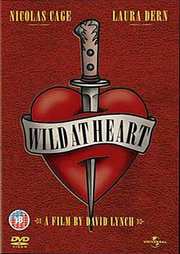




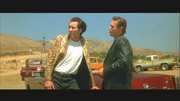
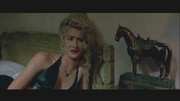
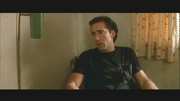
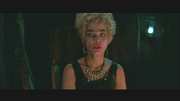
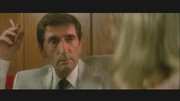

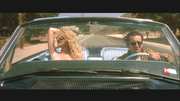
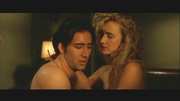
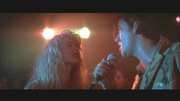
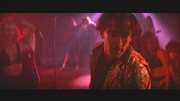
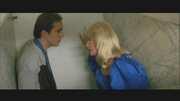





































Your Opinions and Comments
Be the first to post a comment!